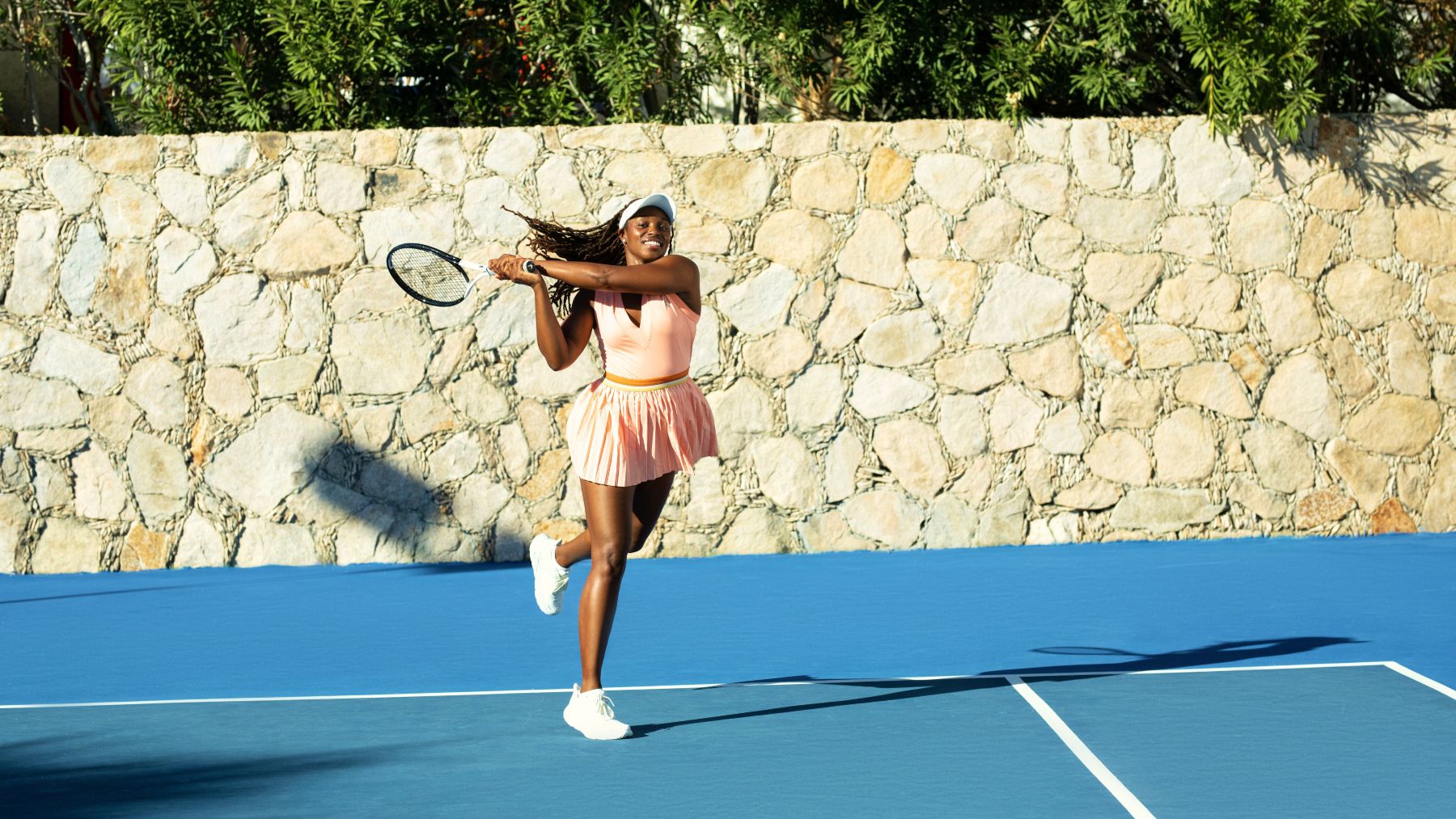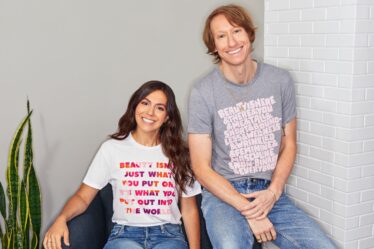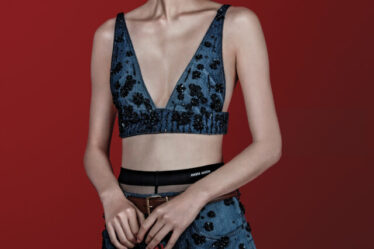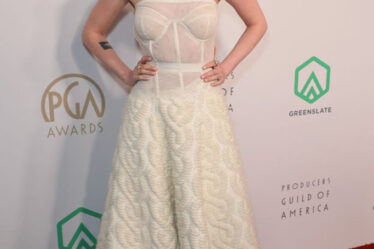
Tennis player Sloane Stephens is leaving the biggest name in sportswear behind.
After four years with Nike, the 2017 US Open champion has signed a new apparel endorsement deal with FP Movement, a sister brand to Free People that sells sportswear staples like track shorts and leggings as well as athleisure-friendly pieces like onesies and fleece jackets. She has worked with Nike since 2018, and previously worked with Under Armour for seven years.
With the move, Stephens joins a growing list of mostly female athletes that are leaving Nike and other major sportswear brands to team up with smaller labels: 2020 Australian Open champion Sofia Kenin left Fila for FP Movement at the start of the year. Olympic gymnast Simone Biles ended her Nike partnership in favour of Gap-owned Athleta. Track star Allyson Felix, with 11 Olympic medals, left Nike in 2017 after criticising the sportswear giant for not doing enough to support pregnant athletes. She signed with Athleta two years later, and co-founded her own brand, Saysh, in 2021. American steeplechase athlete Colleen Quigley left Nike in 2021 for Lululemon.
The trend represents a new phase in female athletes’ decades-long quest to receive the same public recognition and financial compensation as their male counterparts. Traditionally, signing a deal with a giant brand was seen as an athlete’s ultimate goal, and large corporations like Nike have stepped up their investment in women’s sports in recent years. But athletes on a big company’s payroll can find themselves competing for resources and attention. Brands often sign players after early career successes, but interest quickly wanes if they don’t continue hitting the same highs.
“If you’re with one of those companies, and you’re not the number one athlete, if you’re not LeBron, the chances of you getting used all the time and people seeing you visibly are pretty low,” Stephens said.
There are also more options for athletes who leave Nike or Adidas. Athletic wear and athleisure sales have exploded, and McKinsey projects sales will continue to grow 8 to 10 percent annually through 2025. Whether it’s Lululemon and Athleta, newer brands like Outdoor Voices, Girlfriend Collective, or fast-expanding retailers like Vuori or Alo Yoga. Not all have yet expanded into traditional athlete endorsements, but they have arguably built up enough of a reputation for top athletes to see them as a viable alternative.
Partnering with a smaller brand like FP Movement can offer athletes a greater role in the creative process, whether it’s designing their game-day ensembles or dreaming up the campaigns they’ll star in.
“We’re very keen on seeing what [Stephens] is interested in and what she gravitates to from a fashion perspective, and how that starts to impact what we design long term,” said Jack Reynolds, chief marketing officer at FP Movement.
To sweeten the deal, these brands often offer athletes specialised attention on causes important to them: Stephens’ deal with FP Movement comes with support for Girls, Inc., a female-empowerment-focussed charity she’s worked with in the past. Some can even come with equity in the business. And in teaming up with brands that are more directly marketing to women, there’s less concern that they’ll be sidelined for male sports stars.
“Athletes just want to have more say in the creation of what they’re wearing,” said Alexandra Grayson, basketball marketing director at sports marketing agency Octagon. “They have an opportunity when working with these other brands to really have an impact on the products, the marketing, the campaigns, and see a business grow.”
There’s more talent to court, too, now that college athletes in the US have the freedom to ink brand deals of their own, thanks to a number of states passing laws that allow them to profit off of their name, image and likeness, which was previously forbidden by the NCAA.
Smaller brands sign athletes to signal that “‘we’re upping the game, we’re not just a pair of leisure pants, but we’re also good enough for the best athletes in the world,’” said Doug Shabelman, chief executive of Burns Entertainment, a marketing agency specialising in celebrity partnerships.
A sports star can also help get a brand in front of consumers without having to rely so heavily on social media ads, which have become more expensive and less effective since Apple’s 2021 privacy changes.
And while an influencer may post a selfie wearing a brand at their daily yoga class, a world-class athlete sporting a logo at a major sporting event offers a different level of gravitas.
“We’re still a fairly small brand, certainly in terms of competitors in the athletic wear realm,” said Reynolds. “So to bring in [marquee athletes] to open up the brand to new audiences is also a key growth focal point for us.”



